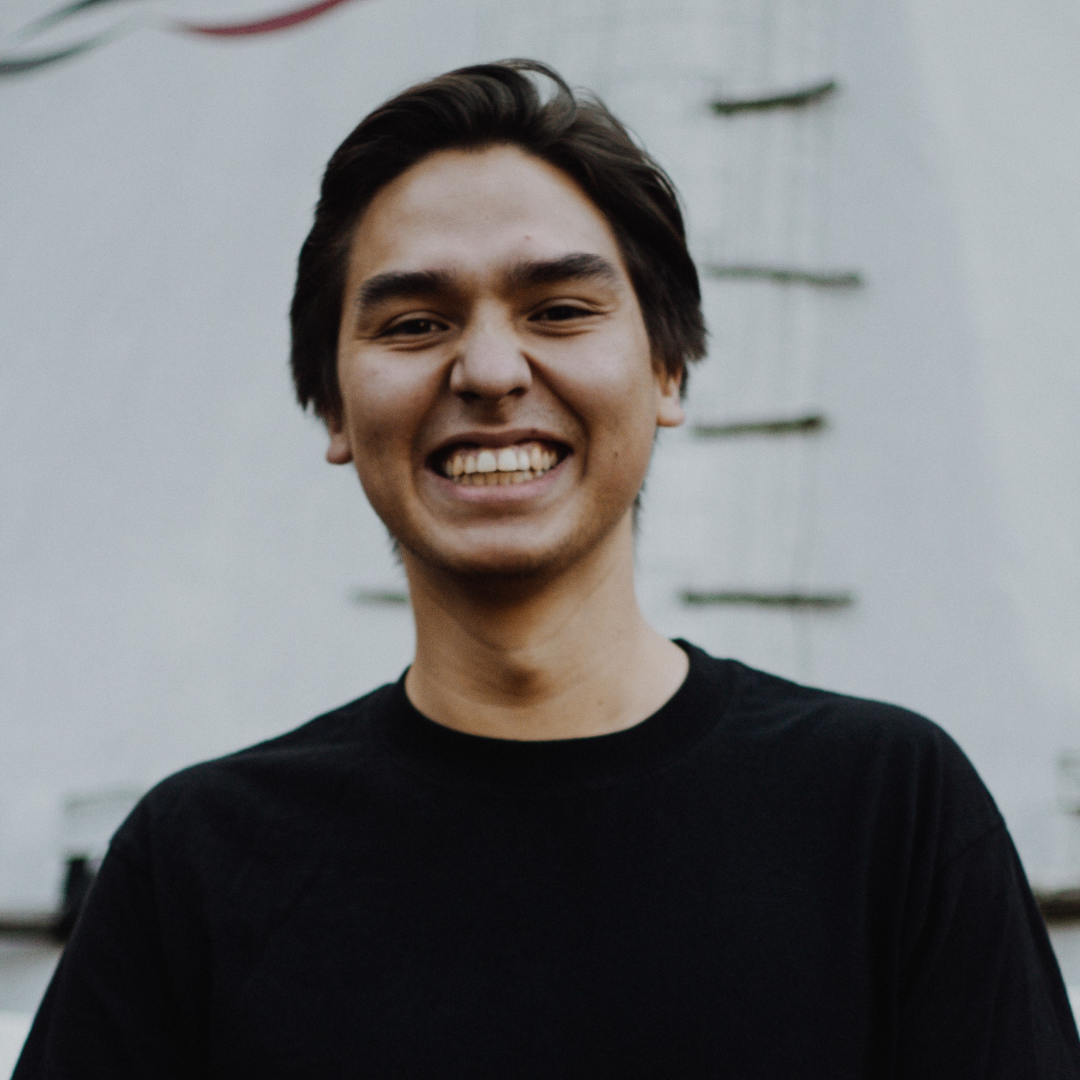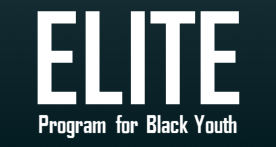
Author: Adiki Puplampu
Date: 10 April 2023
James was born and raised in Fort McMurray, Alberta, and is pursuing his PhD in the Faculty of Chemical and Materials Engineering, specializing in Chemical Engineering at the University of Alberta.
James is a proud University of Alberta alumni having completed both previous master’s and bachelor’s degrees in mechanical engineering there. During that time James also helped to found a new student group called The Indigenous Engineering Students Association (IESA). James is currently Co-President and VP Finance for IESA during his PhD.
James spent a year working for Innova Hydrogen Corporation after completing his graduate degree as a Technology Development Engineer-In-Training. He is now partnered with Aurora Hydrogen who are providing him with the tools and equipment to complete his PhD research. In this Q&A James reflects on the importance of the IBET PhD Program, his experience as a fellow, and his future in engineering.
Can you tell me a little bit about your path to engineering and the work you are currently doing in your PhD program?
So my path to engineering is pretty interesting because I grew up in Fort McMurray and I didn’t know anyone who was an engineer or even know what engineers were. I always thought I was going to go into a trades program or become a dentist. My sister would tease me saying that she’s going to go to university and I’m not. So in grade 11 I had no idea what I was gonna do, and then one of my friends said to me ‘you should be an engineer, you’re good at math. I was like okay and I went to university and I enrolled in engineering.
I didn’t know what engineers even did until my first year of university and I feel like it's like that for a lot of Indigenous students. A lot of Indigenous students don’t know anyone in engineering. And I feel like without that widespread knowledge, it's hard to know what you want to do without having all the things you can do laid out for you.
So I kind of got lucky that this happened and this is what I love to do so I feel like I made the right choice. All because my friend said you should do engineering.
So my research is in methane pyrolysis which is the heating of methane to high temperature so that it splits into hydrogen gas and solid carbon. This hydrogen gas can then be used as clean energy because there is no CO2 created in the process. So it can be used for transportation heating, industrial processes, or fuel because when it's burnt it only produces water. I also create a solid carbon product. Basically, without the CO2 you create a solid carbon that can be used in industry for things like pigments and tires. So it’s a very industrial process but it's not currently being industrialized. It’s being investigated at the university scale and also some startup companies seem to be doing it now, but not as wide spread. So hopefully that’s the goal of the project, to slowly advance into industrial scale.
How has the IBET Program supported your academic work and professional aspirations?
Well, I wasn’t planning on doing a PhD until my old supervisor sent me information about the IBET program. I did my masters and graduated in 2021 and then I think probably half a year later, he sent me this and said fyi if you want you can look into the IBET Program. I looked at it and was like if I can get this funding, it basically gives me a chance to go back to school without having to worry about finances or anything. So I was lucky enough to win the scholarship. Now I’m enrolled in my PhD and I’m very thankful because I probably would just be working and I always wanted the option to do my PhD and I feel like without this program I wouldn’t have had that option.
In your opinion why is it important that a program like IBET exists in Canada?
So I think it’s important because like I said, without this program, I wouldn’t even be enrolled in my PhD program so it could give Indigenous students and Black students a chance to go back to school. And for students that were planning to go back to school it gives them financial support for something they were gonna do anyway. I don’t know about Black people but I know for Indigenous students, enrollment in PhD programs is low so it’s important to get people into programs. I feel like it also gives you an end goal. I got this scholarship, so I’m going to work extra hard to finish my PhD program in four years to make sure I finish before the funding runs out. So I think it helps more people to get into PhD programs which provides more role models for people in the future as well.
What difference do you think a program like IBET makes to the professional and academic ecosystem in your field?
I think it helps diversify the academic field and the workplace. I can’t speak for Black enrollment, but I know that when I started the Indigenous Engineering Students Association back in 2018 and went to find enrollment information, out of 1300 first year students only 50 of them self-identified as Indigenous. In engineering the failure rate is about 40%. So of those 50 there would be even less in the second year and then the year after that, there are less and less.
So I hope that IBET expands. I know it doesn’t actually apply to lower level programs, but I feel like if you get more people in higher education who are Indigenous or Black they provide role models for younger students to see because, I never had anyone when I was in high school or something that I could look up to and be like oh I could be an Indigenous engineering professor or something. The UofA just got their first Indigenous engineering professor in environmental engineering I think back in 2018 or something. I think that’s the first one that they’ve had at least in recent years that I know of. I know they’re in other programs, but I know for engineering it is very important to improve enrollment and ensure that they actually finish their schooling and get the proper support throughout their academic career.
What areas of sub-fields of engineering and technology do you see benefiting most from the support a program like IBET offers? Are there areas you see where Black and Indigenous students are particularly underrepresented?
I can’t speak for Black students but for Indigenous students I know in all areas of engineering they are heavily underrepresented. If you get anyone Indigenous to enroll it's great. I feel like Indigenous people, at least as far as I know, have great respect for the land. So I feel like Indigenous people who enroll in engineering are more likely to go into renewable energy fields or environmental fields, or some type of fields that promote environmental consciousness. So I think that if the IBET program were to help Indigenous enrollment and provide more Indigenous engineers, I feel like programs would benefit, particularly environmental engineering and renewable energy engineering. And those programs would, well I obviously can’t speak for all Indigenous people, but I know personally that’s always been how my dad raised me, very environmentally conscious.
I feel like if you could get more Indigenous people who also understand what it means to properly treat the land, then you could have better communication with Indigenous communities because basically anytime you do environmental work you have to work with Indigenous communities and its people who don’t understand their culture and it can be very difficult to work with a business community. So I think if you get more Indigenous students in engineering that will help them work better together.
As part of this fellowship program you were asked to participate in the ELITE Program Entrepreneurship Design Series and serve as a peer to peer mentor for the interns. Can you tell me a bit about your experience in the Design Series?
So it was an eight week course, every Tuesday and I really enjoyed it. I thought it was a great eye-opener to how startups actually work and what you need to start your own startup. And I was one of the few PhD students and they split us out into different groups. My group actually ended up winning the pitch contest, which was pretty nice to see.
When I realized I was one of the few PhD students I realized that it’s more important for me to be there as a role model for those students. It was like I was the main support for my group. It was kind of eye-opening how even an in an eight week course, like an eight hour day, you can help them develop, and I talked to them about their education and what they wanted to do and I feel like hopefully gave them insight into the university process and how you can best engage in university programs to ensure you’re not missing out on school at the same time. So overall I would say it was engaging and useful and it showed me the benefits of starting a business but also didn’t shy away from the difficulties that you have to endure in order to actually have a successful startup company.
What was it like taking on the mentorship role in the group?
I’d say I enjoyed it. Although it was sometimes difficult because you forget that with high school students it's hard to get them to engage in something. In engineering you learn group work and how to work as a team. I know if you go back to me and my first year of university, even out of high school I didn’t understand how to work in a team and communicate with your group and stuff. So I feel like hopefully I was able to serve as some support and show them how they can actually communicate and execute the project and it seems like it worked because we ended up winning the pitch presentation so it was very exciting.
When you look to the future how do you see yourself applying your knowledge and experience to support your community?
So my end goal is to basically encourage Indigenous youth to pursue education, any form of education not just specifically engineering. In my first year of engineering I spoke with an Indigenous professor in education (Dr. Evelyn Steinhauer) and she basically showed me that Indigenous people can succeed in higher education and she laid out the scholarships I can get. And when I was going through my undergrad, she’s the one that basically kept telling me that I should pursue my masters and then when I received my master’s she was like now you’re going to pursue your PhD and her motivation helped me to achieve what I’m achieving now.
So I hope that I can do that for other students not specifically in engineering but basically all students and I can be a mentor and role model and just show that higher education is possible. I feel like a lot of Indigenous students don’t have the greatest self-esteem and like motivation and I feel like if I was able to just be a role model for anyone and show them they can be excellent in the field that they choose. I feel like that’s basically my main goal of giving back to the community.
Final remarks
I just want to thank the program for choosing me and I’m really thankful to be here and I look forward to more opportunities like this to share my knowledge and more programs like this. Because everyone needs mentoring, everyone needs a role model. So even if you’re in your PhD program like I am, it's still nice to know that there are people available to help you and everyone is after the same thing and everyone wants everyone to succeed. So I just feel like I want everyone to know that there’s someone out there, if they need help. Just ask and someone’s willing to help you.

